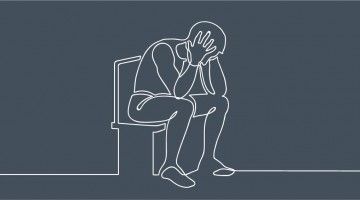Mental health and work
Awareness is growing about the importance of how the work environment, in particular the psychosocial environment, can impact the mental health of workers. Awareness is also growing about the differing work accommodation and return-to-work needs of workers with mental—versus physical—health conditions. Our research aims to identify and measure psychosocial hazards and explore how dimensions of the psychosocial work environment can promote positive mental health or lead to poorer mental health. Our research also explores workplace and system-level strategies for helping workers with mental health conditions—including post-traumatic stress disorders—stay in and return to work.
Latest findings

For a segment of the workforce, psychosocial working conditions are poor across the board
For one in 10 Canadian workers, the psychosocial work environment is poor across the board. What's more, working in such conditions is associated with a substantial increase in their risk of burnout and stress.
Having depression leads to lower earnings over 10 years: study
How much does experiencing a depressive episode hurt an individual's earning potential in Canada? That was the question IWH Research Associate Kathleen Dobson set out to answer.
People’s reasons for disclosing episodic disabilities linked to support they receive
Should people with an episodic disability disclose their condition at work? It's a complex decision. This new study looks at people's reasons for disclosing (or not) and explores whether they are linked to outcomes.Featured guide
Featured resource

